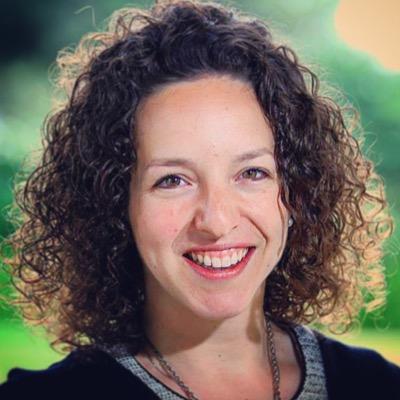Five years ago, Kimberly-Clark and Greenpeace established a framework to work toward long-term solutions to conserve forest resources. On their "wood" anniversary, they hosted a first-of-its-kind Twitter chat at #ForestSolutions to discuss how they worked past their tensions towards a productive and meaningful partnership.
The event was facilitated by TriplePundit's Founder, Nick Aster, and Journalist and Social Media Facilitator, Aman Singh.
The chat's distinguished leaders included:
- Peggy Ward (@PeggyatKC), Kimberly-Clark’s sustainability strategy leader for North America consumer tissue
- Richard Brooks (@RBGreenpeace), forest campaign coordinator for Greenpeace Canada
- Rolf Skar (@RolfSkarGP), forest campaign director for Greenpeace USA
- From @Future500 & @JenBoynton: How did #stakeholderengagment play an active role in your collaboration? and in sustainability reporting? #forestsolutions
- From @susancamberis: Has KC done any work to connect consumer and employment branding, relative to this initiative?#forestsolutions
- From @bizsocially: What about finding employment for people who used to cut forests illegally (in dev countries) anyone working on that?
- From @DRMeyer1: Is there an auditing component of the collaborative partnership to verify forest stewardship practices?
- From @goodwithstyle: Does KC have a "recycling" biz--for profit?
- From @dogwoodalliance: How does their movement on recycled fiber compare to alternative fibers?
Greenpeace: It is a bit apples and oranges since one (recycled fiber) has been in K-C products for years on a very large scale and the other (alternative fibers) are in start-up mode. A lot of companies are looking into alternatives to wood fiber, and in terms of big corporations, K-C has been on the cutting edge. The K-C announcement that it would reduce by half its use of wood from natural forests by 2025 came after the August 5, 2009 policy that ended the Kleercut campaign. So, this was a good example of the company taking initiative and building on its previous commitments for the sake of the planet and its bottom-line. Since industrial-scale use of things like bamboo in North America is relatively new, we are all learning. Things like the company’s life cycle assessment of alternative fibers is advancing our shared understanding and helping to point the best way forward.
- From @davidtulauskas: What key metrics r u using to determine success?
Greenpeace: We review what K-C is buying versus their targets regularly. Another way we determine success is how the company deals with potential problems we flag for them. For example, if there’s social conflict brewing in a region from which they source, we want to see the company proactively address that problem, cut contracts with out-of-compliance suppliers, etc. To date, the K-C team has been good about rolling up their sleeves and working on solutions.
- From @troywiseman: Is KC seriously considering verticality integrating again, rather than simply purchasing certified and sustainable material?
- From @simone_Emilie: Any collab on #reforestation #conservation for #forestsolutions part of #CSR partnership?
Greenpeace: Greenpeace tends not to do a lot of project-based work (things like tree-planting or managing restoration projects). So, it’s not a big part of our partnership, but it is something K-C has worked with other NGOs on.
- From @tekclean: what about energy use? Paper making is very energy intensive!
Greenpeace: @tekclean makes a good point. While companies like K-C invest in efficiencies, it is important for us all to support the continued development of climate-friendly energy sources. You can read more about the Greenpeace vision of a “Energy [r]Evolution” here.
- From @whatsNyourpapr: R there ways @KCCorp educates about the value of FSC label, how 2 recognize, why it is preferred?
- From @duncandorset: Are KC non-woven products aka flushable wipes blocking sewer systems and causing env pollution? Why do we need them?
Greenpeace: In general, we think the world could do with fewer throw-away products. However, if millions of people want to buy them, it is important that what goes into them is sustainable. There are times when Greenpeace and K-C see things differently when it comes to disposables, but that does not get in the way of our collaboration to ensure the fiber they are buying is helping keep forests standing.
- From @milindamartin: re A7a: how often did you meet, and how high up the @KCCorp org was in the room?
Greenpeace: Support from the highest level in companies is key. If sustainability efforts are only being pushed by well-meaning staff, but the CEO is not bought in, they can fail over time, or just plain not deliver. K-C has demonstrated that its leadership understands the value of its sustainability initiatives and the company’s engagement with stakeholders like Greenpeace.
- From @future500: What industry lessons can be learned by the success of @KCCorp and @greenpeaceusa's collaboration?
Greenpeace: Companies need to throw away some of the outdated ideas that used to inform how to “handle” NGOs like Greenpeace. We still hear people (often expensive marketing or legal advisors) tell companies to ignore us, never trust us, that we’re only out for money, etc. This is terrible advice. The age when executives could put their heads in the sand about sustainability is over. Transparency, collaboration and innovation are what is required moving forward.
- From @mary_mazzoni: Any collaboration on reforestation and community development in pulp and paper producing nations?
Greenpeace: It’s not just the tropics. Greenpeace and K-C have worked together to support community and conservation planning initiatives in the Canadian Boreal Forest, for example. That includes looking for opportunities to help diversify the economies of communities traditionally dependent on resource extraction.
--
Thanks again for your participation! Please be sure to join our next Twitter chat coming up with Heineken later this month!

Marissa is the Owner of Climate Social, LLC. She holds a bachelor's degree in communications from Mizzou and a master's in environmental studies from UPenn.














